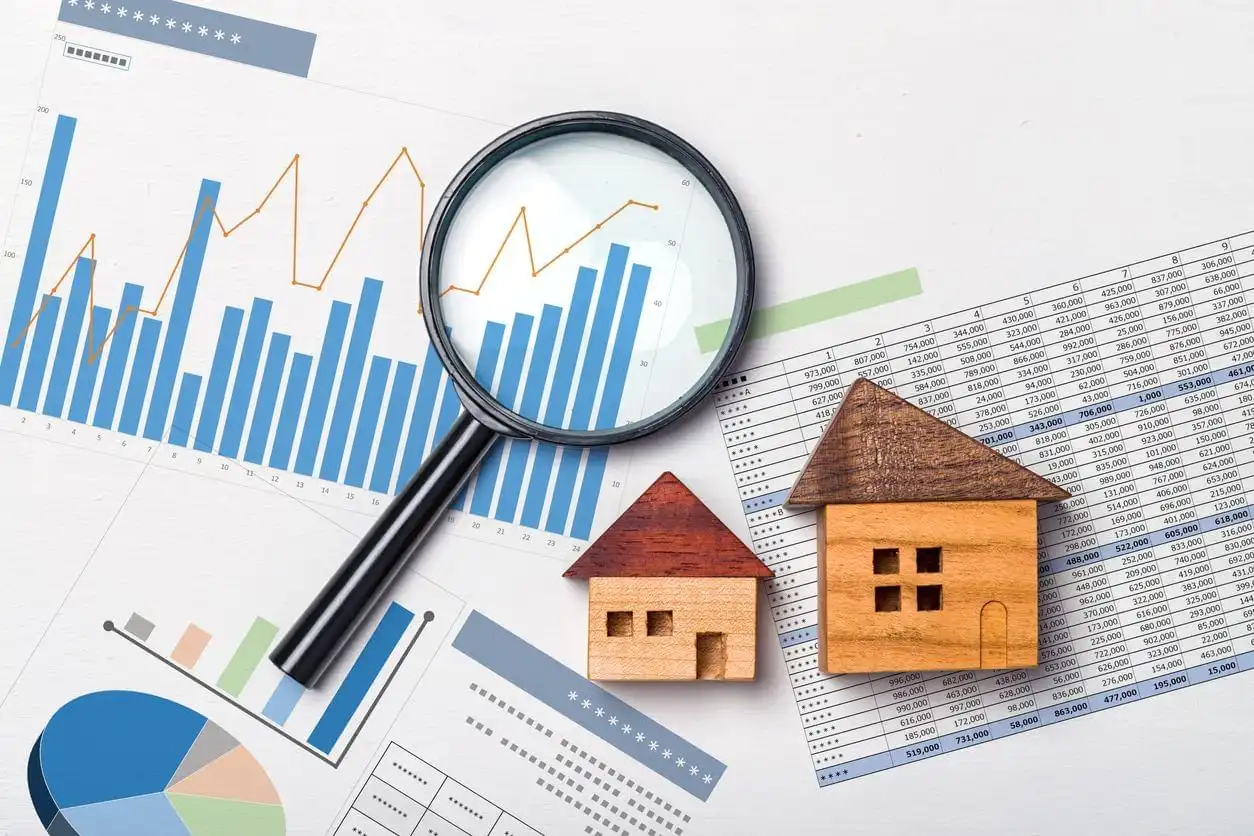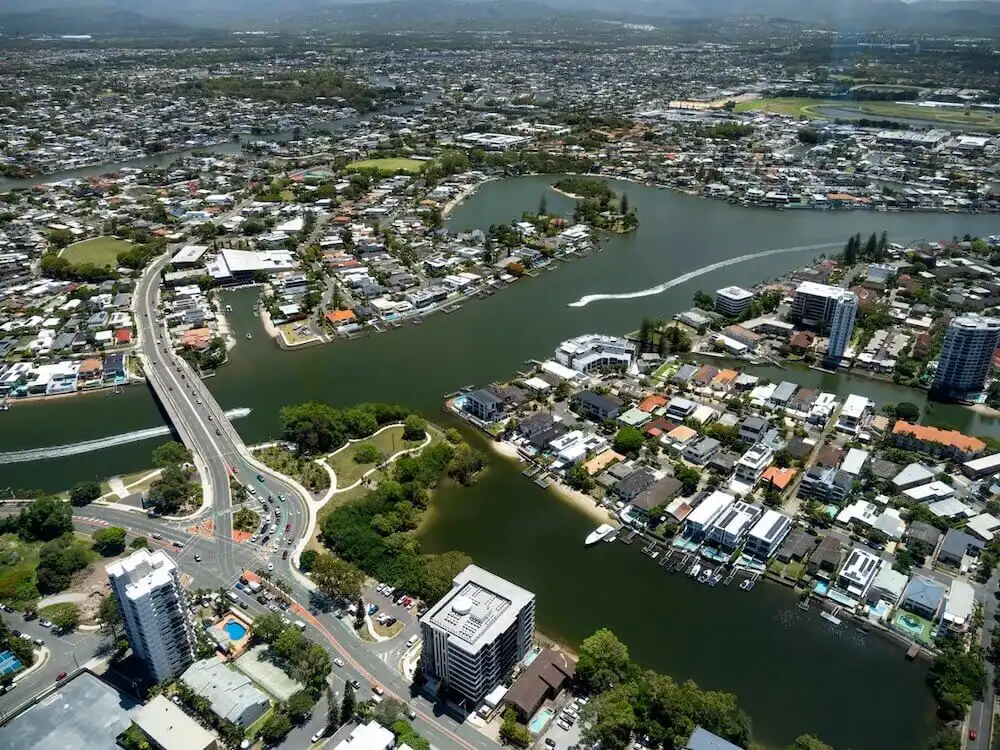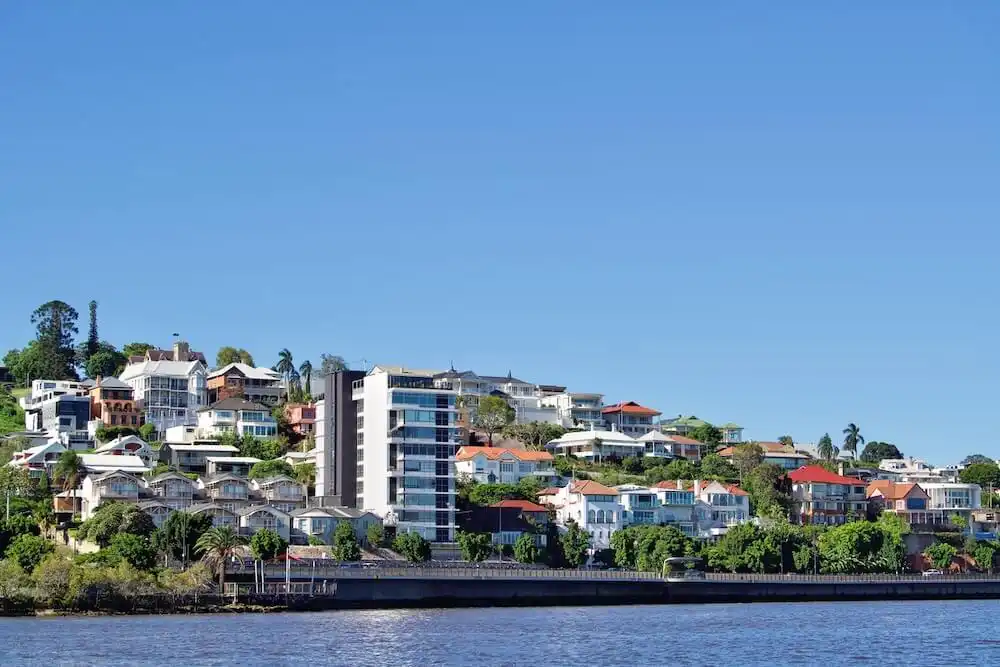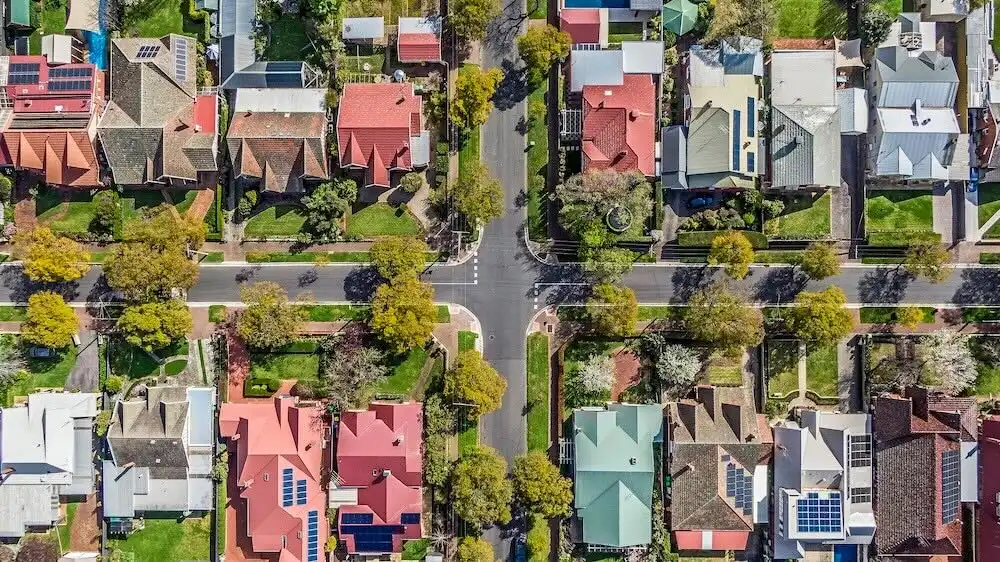Property prices rebound as buyer confidence grows
After a "short and shallow" downturn lasting barely three months, Australian property values are on the rise again after a resilient February.
According to CoreLogic's latest report, the widespread uplift came as last month's interest rate cut reinvigorated consumer sentiment around the country.
Find out if the upward trend is likely to continue throughout 2025.

Get a free property value estimate
Find out how much your property is worth in today’s market.
Australian property prices: February 2025
The national median property value rose by a solid +0.3 per cent in February according to CoreLogic data.
That bump effectively erased the -0.3 per cent dip that was seen around the country in the three months to January.
| Market | Month | Quarter | Annual | Median value |
|---|---|---|---|---|
| Sydney | 0.3% | -0.9% | 1.1% | $1,186,459 |
| Melbourne | 0.4% | -1.1% | -3.2% | $772,561 |
| Brisbane | 0.2% | 0.9% | 9.7% | $894,425 |
| Adelaide | 0.3% | 1.2% | 11.9% | $822,201 |
| Perth | 0.3% | 0.3% | 14.3% | $807,933 |
| Hobart | 0.4% | -0.1% | -0.3% | $661,544 |
| Darwin | -0.1% | 0.7% | 1.5% | $506,591 |
| Canberra | 0.2% | -0.8% | -0.9% | $846,955 |
| Combined capitals | 0.3% | -0.4% | 3.2% | $896,613 |
| Combined regional | 0.4% | 1.0% | 5.5% | $661,966 |
| Australia | 0.3% | -0.1% | 3.8% | $815,912 |
Most notably, Sydney and Melbourne saw a reversal of momentum, with Melbourne recording its first price gain in ten months.
Meanwhile, Brisbane, Adelaide and Perth all delivered much softer growth than was seen throughout 2024, bringing their monthly change right in line with Sydney and Melbourne.
Hobart equalled Melbourne's +0.4 per cent lift and Canberra saw a small increase, making Darwin the only capital city to see any decline over February.
Regional markets also showed strength, with no further price falls seen in any state.
CoreLogic's research director, Tim Lawless, said "Expectations of lower interest rates, which solidified in February, look to be flowing through to improved buyer sentiment.
“Along with the modest rise in values, we have also seen an improvement in auction clearance rates, which have risen back to around long-run average levels across the major auction markets."
Three key takeaways from the current market
With 2025 now in full swing, a number of changing dynamics have emerged in our property markets. Here are a few of the headline trends worth following.
The first rate cut has already had a significant impact
While it's widely expected that interest rates will continue to drop throughout 2025, the RBA's first cut in February was enough to stimulate the market and entice Australian property buyers.
While affordability remains a key challenge, lower borrowing costs are encouraging more buyers back into the market, particularly in markets like Sydney and Melbourne where prices had softened the most.
If further rate cuts come this year, the momentum could build, leading to stronger price growth in the months ahead.
Supply is still dragging behind demand
One of the key factors supporting home values is the continued shortage of properties on the market.
Mr Lawless pointed out that, "Although total advertised supply levels are almost 1 per cent higher than a year ago, listings remain -7.9 per cent below the previous five-year average."
That lack of listings is now meeting stronger buyer demand in the face of declining interest rates, and it's a trend that sellers should keep a close eye on in their own suburbs.
"The reduced flow of fresh stock to market could be supporting some upward pressure on prices, especially if buyers are becoming more active amid higher sentiment and lower rates," Mr Lawless concluded.
Higher priced markets are leading the upswing
As CoreLogic analysis has often proven in the past, the early signs of a market recovery are typically most pronounced in areas with more premium prices, particularly when a rate cut is involved.
Upper quartile properties (ie. the most expensive 25 per cent of homes) in Sydney and Melbourne, which experienced some of the steepest declines during the rate hike cycle, are now seeing the strongest rebound.
Historically, higher-end markets tend to respond more quickly to shifts in interest rates, and this trend appears to be playing out again.
Buyers with greater borrowing capacity are taking advantage of the improved lending conditions, while sellers in these markets may find renewed interest in their properties.
What's next for Australian property?
The Australian property market seems to be turning a corner, but not all areas are bouncing back at the same pace.
Lower interest rates are helping to lift confidence, though borrowing power is still a bit restricted and affordability remains poor, which means the recovery could take time.
Some of the markets that saw the biggest price drops — Hobart, the ACT, and Melbourne — are now in a good position for a comeback, especially in higher-end suburbs.
In fact, Sydney and Melbourne’s premium markets have historically responded the fastest to rate cuts, and that trend looks set to continue.
More buyers are feeling optimistic, but with migration slowing down, demand might not surge as quickly as it has in the past.
With construction levels still low, especially for apartments, property prices could stay well supported, and if the RBA continues cutting rates, we might see an even stronger rebound as 2025 unfolds.






